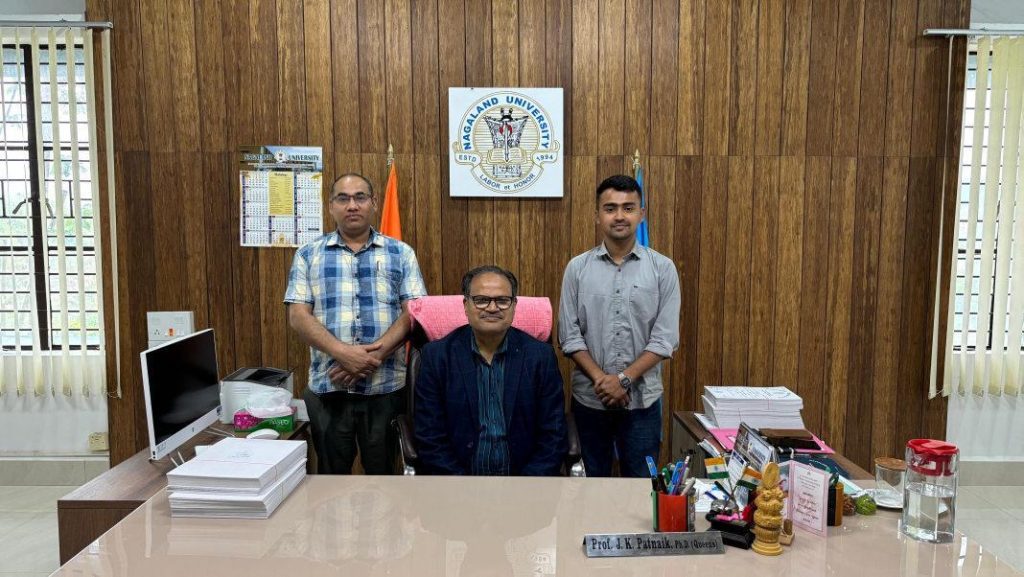
Nagaland PhD Scholar Bags Global Fellowship for Green Battery Tech
In a significant breakthrough that has put Northeast India on the innovation map, a PhD scholar at Nagaland University, Dipankar Hazarika, has won the prestigious Royal Norwegian Embassy’s Energy Innovation Fellowship. This coveted fellowship is a testament to his innovative work on biodegradable hydrogel-based battery technology, which offers a safer and greener solution for clean energy storage.
Hazarika’s research focuses on developing a novel battery technology that utilizes biodegradable hydrogels to improve the performance, sustainability, and safety of energy storage devices. His work has the potential to revolutionize the clean energy sector, making a significant impact in rural electrification and next-generation electronics.
The Energy Innovation Fellowship is a highly competitive program that recognizes and supports innovative ideas and projects in the field of energy. The fellowship provides a unique opportunity for researchers to collaborate with Norwegian partners, gain access to cutting-edge facilities, and receive mentorship from industry experts.
Hazarika’s journey to this prestigious fellowship began when he started working on his PhD thesis under the supervision of Dr. M. S. Rao at Nagaland University. His research aimed to develop a biodegradable battery technology that could replace traditional battery materials, which often contain toxic chemicals and heavy metals.
After several months of intense research, Hazarika successfully developed a biodegradable hydrogel-based battery that demonstrated exceptional performance, safety, and sustainability. His invention has the potential to make a significant impact in the field of energy storage, as it offers a safer, greener, and more cost-effective alternative to traditional battery technologies.
The success of Hazarika’s research was further validated when he filed a patent for his biodegradable hydrogel-based battery technology. His invention has the potential to disrupt the clean energy sector, enabling the widespread adoption of renewable energy sources and reducing our reliance on fossil fuels.
Hazarika’s achievement is not just a testament to his hard work and dedication but also a reflection of the growing importance of innovation and research in the Northeast region. The region has seen a significant surge in research and innovation activity in recent years, with several institutions and organizations investing in cutting-edge research facilities and programs.
The Royal Norwegian Embassy’s Energy Innovation Fellowship is a significant recognition of Hazarika’s innovative work, and it provides him with a unique opportunity to collaborate with Norwegian partners and gain access to cutting-edge facilities. The fellowship will enable him to further develop his biodegradable hydrogel-based battery technology and explore its potential applications in the clean energy sector.
The impact of Hazarika’s research extends beyond the clean energy sector, as it has the potential to improve the lives of millions of people around the world. His invention could play a critical role in achieving sustainable development goals, particularly in rural areas where access to clean energy is often limited.
In conclusion, Dipankar Hazarika’s achievement is a significant milestone in the journey of innovation and research in the Northeast region. His biodegradable hydrogel-based battery technology has the potential to revolutionize the clean energy sector, and his receipt of the Royal Norwegian Embassy’s Energy Innovation Fellowship is a testament to his innovative work. As Hazarika continues to develop his technology and explore its potential applications, he is set to make a significant impact in the years to come.






